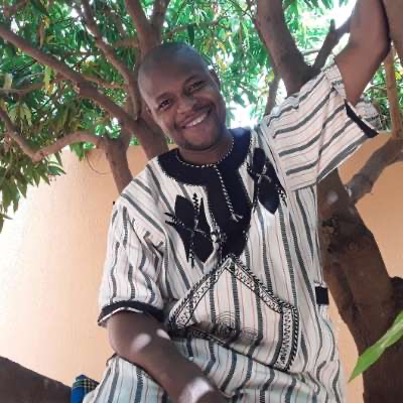
Dr Isidore Houaga
A researcher from Africa has joined the Centre for Tropical Livestock genetics and Health (CTLGH) on a two-year fellowship to develop genomic tools to improve breeding programmes for East African dairy production systems.
Dr Isidore Houaga, a researcher from CIRDES in Burkina Faso, joined the Centre in May after being awarded a Royal Society Newton International Fellowship.
As part of Dr Houaga’s Fellowship project he will conduct a thorough genetic evaluation of African crossbred dairy cattle and look to develop breeding programmes to produce suitable crossbred cattle in the future for a variety of tropical dairy systems in East Africa.
Improving the Performance of Dairy Cows in Africa
Farmers and researchers agree that the ideal dairy cow for Africa would combine the productivity of exotic breeds with the tropical adaptation of the indigenous breeds. However, exotic and indigenous crosses with the same proportions of the two breeds vary enormously in their performance. Dr Houaga will therefore try and determine if there is a desired breed origin for each genome region.

crossbred dairy cow in Rwanda - image credit ILRI & EADD
As part of his project, Dr Houaga will examine huge genomic data and phenotypic records of thousands of pure and crossbred dairy cows in East Africa.
He will then try and develop a breeding approach that can be used in Africa to produce suitable crossbreds cattle with the desirable production, health and resilience traits required for a range of tropical dairy systems, including single house cow, the smallholder farm and the commercial dairy herd.
Mentorship, Training and Professional Development
During his fellowship Dr Houaga will be based at CTLGH’s UK node at the Roslin Institute, part of the University of Edinburgh, and work with other researchers to develop his existing knowledge in the genomic analysis of large datasets.
Whilst at CTLGH Dr Houaga will be under the mentorship of Professor Appolinaire Djikeng and Dr Gregor Gorjanc, Chancellor’s Fellow at the Roslin Institute. Other mentors and key collaborators include Dr Okeyo Mwai (ILRI), Professor Raphael Mrode (ILRI and SRUC) and Prof Mizeck Chagunda (University of Hohenheim).

One of the major aims of the Royal Society Newton International fellowship is to support the professional and personal development and training of postdoctoral researchers at an early stage of their career.
Over the next two years Dr Houaga will attend specialised training courses to enhance his existing skills in genomic selection, quantitative genetics, breeding theory and data analysis, and simulation and software tools.
He will also participate in workshops and international conferences and benefit from the many training courses for early career scientists offered by the University to learn specific skills including leadership, communication and how to attract research funding that will help him in his future research career.
Developing Existing Knowledge
Originally from the Republic of Benin, Dr Houaga completed his PhD at the Pan African University Institute for Basic Sciences, technology and Innovation (PAUSTI) in 2018 before taking up post as a Junior Research Scientist in Animal Genetics and Breeding at CIRDES, a livestock development research and capacity development institute in Burkina Faso. His research is currently focused on the development of methodologies to support improved livestock productivity and breeding in Africa. He has a particular interest in using genetic evaluations to support breeding decisions that aim at ensuring environmental sustainability and resilience of livestock.

Dr Houaga commented:
“I am so excited to have been awarded a Newton International Fellowship. Joining CTLGH will enable me to meet, work, collaborate and learn from researchers in the UK working in the computational analysis of livestock genomic data.”
“This fellowship will allow me to bring new knowledge in genetics and breeding back to Africa and the tools and resources generated from my Fellowship project will have direct applications and potential impact in many sub-Saharan African countries through the African Animal Breeding Network and the African Dairy Genetics Gain Programme.”
Dr Gregor Gorjanc, Chancellors Fellow at Roslin Institute and Head of the Highlander Lab commented:
“We are looking forward to working with Isidore and his research. We would like to support him in his goals as much as we can.”
Professor Appolinaire Djikeng, Director of CTLGH added:
“We are delighted to welcome Isidore to the Centre and support him through his Royal Society Newton International Fellowship. Isidore’s project aligns perfectly with the objectives of CTLGH and will not only allow him to build his own connection with the Centre’s many partners and collaborators working in tropical dairy development, but will also strengthen our collective ability to improve tropical livestock resilience, productivity and profitability through genetic gains.”
**CTLGH receives funding from the Bill & Melinda Gates Foundation (BMGF), the UK Foreign Commonwealth and Development Office (FCDO), the UK Biotechnology and Biological Science Research Council (BBSRC) and Jersey Overseas Aid (JOA)**

